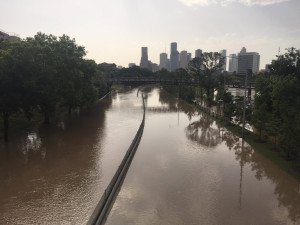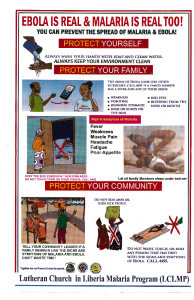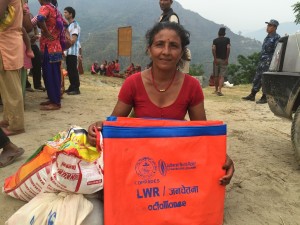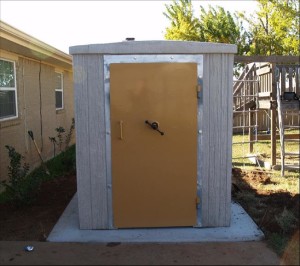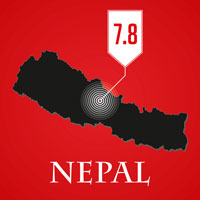Lutherans are taking action across the country! Below you will find our monthy State Advocacy Newsletter. Share with your friends!
Washington, D.C.
Advocacy Director, Stacy Martin
www.elca.org/advocacy
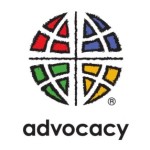 Report on Central America: This month, ELCA Advocacy completed a report on the findings from a recent trip taken by ELCA leaders to El Salvador, Honduras and Guatemala to better understand what drives so many children and families to flee their homes. This report, titled “Our Communities in Crisis,” takes a faithful look at the root cause of Central American forced displacement and the repatriation of children and families after the summer of 2012. The ELCA continues to be committed to lifting up the voices of our communities in Central America. Take action today by urging President Obama to speak out for the protection of those fleeing violence and persecution in Central America – visit our Action Center now to send a message to the president.
Report on Central America: This month, ELCA Advocacy completed a report on the findings from a recent trip taken by ELCA leaders to El Salvador, Honduras and Guatemala to better understand what drives so many children and families to flee their homes. This report, titled “Our Communities in Crisis,” takes a faithful look at the root cause of Central American forced displacement and the repatriation of children and families after the summer of 2012. The ELCA continues to be committed to lifting up the voices of our communities in Central America. Take action today by urging President Obama to speak out for the protection of those fleeing violence and persecution in Central America – visit our Action Center now to send a message to the president.
Global Food Security Act: Recently, members of the House and Senate reintroduced the Global Food Security Act – an act that will enhance international development programs and investments, such as Feed the Future. The Global Food Security Act will help institute a comprehensive strategy to promote global food security, strengthen existing monitoring and evaluation practices to ensure efficiency and accountability, and support initiatives, such as improving maternal and child nutrition. ELCA Advocacy is taking action to help promote food security by urging members of Congress to pass this legislation. Learn more about Feed the Future and our efforts to support responsible international development in our Global Food Security Act fact sheet.
Green Climate Fund: ELCA Advocacy announced its support of the Green Climate Fund last month. This international initiative mobilizes support for developing nations struggling to combat the growing effects of climate change. The consequences of climate change fall hardest on our brothers and sisters throughout the world who are least able to adapt because they live in communities already struggling with poverty and hunger. The fund will help pay for developmental initiatives for marginalized countries, increasing their ability to adapt to new environments and expanding their capacity to reduce greenhouse gas emissions. You can learn more about the fund at our ELCA Green Climate Fund Fact Sheet.
Financial debt in Nepal: Jubilee USA Network, an alliance of organizations and faith communities of which the ELCA is a member, is spearheading an international effort to support Nepal’s recovery efforts by cancelling the country’s overwhelming debt. ELCA Advocacy joined Jubilee USA in urging the International Monetary Fund and the World Bank to provide immediate debt relief to Nepal so that the government can redirect these funds toward recovery and rebuilding efforts. Take action on this issue by visiting our Action Center.
New York, NY
Dennis Frado
Lutheran Office for World Community
Peace Not Walls conference call with Presiding Bishop Eaton: LOWC joined other staff in planning for a conference call held on May 19 by ELCA Presiding Bishop Elizabeth Eaton and Global Mission Area Program Director Cindy Halmarson with ELCA members with a keen interest in the Peace Not Walls campaign. It was an opportunity for those listening to hear about the Presiding Bishop’s recent January visit to the region and her perspectives on the current situation there.
U.N. Post-2015 Development Agenda: The fifth session of intergovernmental negotiations for the Post-2015 Development Agenda took place between May 18 and 25 in New York. Just three more sessions are planned before the conclusion of negotiations in late July. Disagreements remain as to whether implementation of the proposed Sustainable Development Goals will involve “follow-up and review” (which most developing countries support) or “monitoring, accountability and review” (which many developed countries support). There appears to be emerging consensus that the High-Level Political Forum, created at the Rio+20 conference in 2012, will be the venue for follow-up activities once the agenda is adopted. Consensus has not yet been reached on the means of implementation for the goals or on the relationship of the findings of the August Financing for Development conference to the Post-2015 Agenda. A “zero-draft” of the outcome document, which would be considered at the late September U.N. Summit to the Adopt the Post-2015 Development Agenda, is to be released on June 1.
Visitors: LOWC has hosted a variety of visitors in recent weeks. These included Caroline Tveoy, Lutheran World Federation World Service Program officer for the Middle East and North Africa, based in Geneva, who stopped in New York to discuss the ELCA’s Peace Not Walls campaign, while in transit to Haiti. The Manhattan Ministerium of the Metro New York Synod visited to learn about LOWC’s work. The Rev. Joachim Tröstler of the North Elbian Evangelical Lutheran Church is on sabbatical and was interested in comparing the linkages between ministry with migrants and congregational-based community organizing in Germany and in the United States and how the issues are handled at the United Nations. Lastly, a group of Upstate New York Synod participants in a Peace Not Walls-related visit to the Holy Land stopped by on their way to the region.
California
Mark Carlson, Lutheran Office of Public Policy
www.loppca.org
Synod Assemblies: LOPP-CA Director Mark Carlson participated in one day of the Pacifica Synod Assembly in Riverside, affording a chance for renewal and reconnection after missing last year’s in Hawaii. Mark left early to return to the Sierra Pacific Assembly in Sacramento, where LOPP-CA and Lutheran Episcopal Advocacy in Nevada hosted a breakfast for about 55 people with California Food and Agriculture Secretary Karen Ross on the topic of food, farming, drought and climate change. As Texas was devastated by floods, the Central Valley Flood Control Agency heard a report that the Sierra snowpack, which provides about one-third of California’s water supply, is at 2 percent of normal.
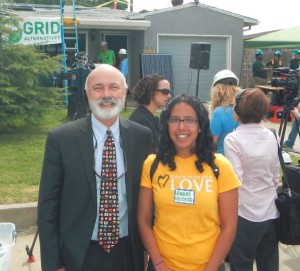 Lobby days: Mark teamed with Mark Lowry, a member of Christ Lutheran Church in Orange and executive director of the Orange County Food Bank, for legislative visits on Hunger Action Day, supporting repeal of the Maximum Family Grant aid limit for TANF/CalWORKS families, an increase in the minimum wage, “breakfast after the bell,” and simplification and expansion of tax credits for California farm product donations. Mark gave a prayer of thanksgiving at the interfaith service to open Immigrant Day at the Capitol, followed by lobby visits. He and a “dreamer” from Ventura County broke away to attend an event with state and local elected officials where solar panels were placed on the roof of a low-income homeowner in a “disadvantaged neighborhood,” using carbon cap-and-trade funds.
Lobby days: Mark teamed with Mark Lowry, a member of Christ Lutheran Church in Orange and executive director of the Orange County Food Bank, for legislative visits on Hunger Action Day, supporting repeal of the Maximum Family Grant aid limit for TANF/CalWORKS families, an increase in the minimum wage, “breakfast after the bell,” and simplification and expansion of tax credits for California farm product donations. Mark gave a prayer of thanksgiving at the interfaith service to open Immigrant Day at the Capitol, followed by lobby visits. He and a “dreamer” from Ventura County broke away to attend an event with state and local elected officials where solar panels were placed on the roof of a low-income homeowner in a “disadvantaged neighborhood,” using carbon cap-and-trade funds.
UPCOMING – California Interfaith Power & Light Lobby Day, June 17. LOPP-CA is the site host.
Colorado
Peter Severson, Lutheran Advocacy Ministry – Colorado
www.lam-co.org
The first legislative session of the 70th Colorado General Assembly is officially in the books. With control of the two chambers split between parties, it was a tough year for many groups to get their priorities passed, but LAM-CO had several important bipartisan victories.
Child Support Pass-through: Lutheran Advocacy Ministry-Colorado and several of its partners in poverty-related legislation were thrilled that Senate Bill 12 made it through both the Senate and House and is currently awaiting a signature from Gov. John Hickenlooper. The bill, which allows families receiving TANF (Temporary Assistance for Needy Families) benefits to also receive child-support payments that were previously withheld by county governments, is one of the measures that will directly benefit families living in poverty that survived this year’s Legislature.
Affordable housing: Several late-breaking bills on affordable housing were quickly advanced through the House before being killed in the Senate. These bills would have used surplus funds from a state trust fund to invest in affordable housing construction and rent subsidy for low-income workers, as well as extending the life of the low-income housing tax credit.
Other priorities: A measure to provide an affirmative defense for the crime of prostitution to minor victims of human trafficking was passed and signed by the governor. The House narrowly killed legislation that would have created paid family and medical leave insurance. A Senate committee defeated a bill to create a rural economic initiative grant program.
Illinois
Jennifer DeLeon, Lutheran Advocacy Illinois
www.lutheranadvocacy.org
Legislative session: We are at the end of the legislative session, and it seems like the Legislature will not pass a balanced budget by their May 31 deadline and that they will be called back for a special summer session. There is still time to act:
Budgets are choices. It’s time for politicians to choose Illinois children, families and communities. Illinois doesn’t have to make the deep cuts proposed in the governor’s budget; we have a choice. Instead of painful cuts to vital programs for our children, families and communities, lawmakers and the governor must choose revenue.
Act NOW! Tell lawmakers to choose to stand up for Illinois families and communities and prevent cuts by choosing revenue to close the budget hole. Do two things today:
- Call your lawmaker tool free at 844-311-CUTS (844-311-2887) and tell them to choose revenue to prevent cuts to children, families,and communities.
- Click here to send an email and for more information.
We continue to work with Judith Roberts, director of Racial Justice, and we have submitted a criminal justice resolution at both the Metro Chicago Synod and Northern Illinois Synod assemblies , which calls on congregations to advocate for social justice and to support Lutheran Social Service of Illinois prison and family ministry programs.
Minnesota
Tammy Walhoff, Lutheran Advocacy – Minnesota
tammy@lcppm.org
Health and human services: Despite a $1.9 billion surplus, hundreds of millions were cut from low-income programs. Nevertheless, intense advocacy efforts achieved moderate increases in some housing-related services. Notably, $2 million was added to base funding for homeless youth over two years.
Affordable housing and clean energy: Affordable housing, jobs, economic growth and energy were all in the same bill. LA-MN and Minnesota Interfaith Power & Light presented their clean energy faith-leader letter with 300+ signers to Gov. Dayton, conference negotiators, leadership and legislators. LA-MN also generated letters, cards, emails and calls from key districts regarding affordable housing.
Conference negotiations on the bill never occurred, but the chairs introduced replacement language in the final moments of session. Watch the House pass it in the last two minutes, with the wrong bill number, amidst chaos! Energetic advocacy efforts prevented renewable energy and energy-efficiency roll-backs and cuts to housing. The bill was vetoed, so LA-MN and its partners hope more gains may be made.
Synod-related activities: Tammy Walhof, LAMN director, was the speaker for the Southeastern Minnesota Synod Creation Care Assembly and also led workshops. She had display materials at the Minneapolis Area Synod Assembly and stayed briefly before heading to the Northwestern Minnesota Synod Assembly, where she led workshops on affordable housing and advocacy.
Like Lutheran Advocacy-MN on Facebook
Follow Lutheran Advocacy-MN on Twitter: @LuthAdvocacyMN
New Jersey
Sara Lilja, Lutheran Office of Governmental Ministry in New Jersey
Visit us on Facebook!
The goal of LEAMNJ is to be a powerful public witness of faith through advocacy, representing nearly 80,000 people in 450 parishes in New Jersey, backed by the national Lutheran and Episcopal churches, reflecting more than 8.7 million people in the United States. It will shape and influence public policy in New Jersey and in local communities as that policy affects vulnerable populations, social justice issues and other priorities that reflect the common teachings and values of the partner groups.
There is great excitement by all the partners for the promise of the combined new entity to have an impact on policy affecting the concerns of people in our neighborhoods and state.
“As society has become more bifurcated into seemingly separate worlds of those with means and those without, we come together to forge a strong voice to express the commitments of our faith traditions in advocating for policies leading to a just society,” said Lilja. She added, “I’m proud to lead this charge on behalf of our new partnership and to grow the expression of compassion and social justice by means of education and advocacy through congregations throughout the state.”
New Mexico
Ruth Hoffman, Lutheran Advocacy Ministry – New Mexico
www.lutheranadvocacynm.org
 “We are Church: Better Together” That “the church” is much more expansive than each individual congregation was highlighted over and over at the 2015 Rocky Mountain Synod Assembly in Salt Lake City, Utah, May 1-3. “Our form and structures may change, the extent of our actual usefulness to God may wax and wane, but that God can and does work in and through us – this is a promise,” said Bishop Jim Gonia, addressing the assembly.
“We are Church: Better Together” That “the church” is much more expansive than each individual congregation was highlighted over and over at the 2015 Rocky Mountain Synod Assembly in Salt Lake City, Utah, May 1-3. “Our form and structures may change, the extent of our actual usefulness to God may wax and wane, but that God can and does work in and through us – this is a promise,” said Bishop Jim Gonia, addressing the assembly.The state public policy offices in Colorado and New Mexico, which are an integral part of the ministry of the Rocky Mountain Synod, were an active part of the Synod Assembly. Lutheran Advocacy Ministry-New Mexico and Lutheran Advocacy Ministry-Colorado had displays about their work and activities. Directors Ruth Hoffman and Peter Severson presented an advocacy toolkit during an interest dinner. Additionally, they served on the Committee on Reference and Counsel, which reviewed proposed resolutions and memorials for consideration by the assembly.
 Affordable housing: Director Hoffman is a member of the State Housing Trust Fund Advisory Committee. At the committee’s most recent meeting, several low-income housing projects were recommended for funding. The projects included those at Santo Domingo Pueblo, Silver City in southwestern New Mexico and in Albuquerque.
Affordable housing: Director Hoffman is a member of the State Housing Trust Fund Advisory Committee. At the committee’s most recent meeting, several low-income housing projects were recommended for funding. The projects included those at Santo Domingo Pueblo, Silver City in southwestern New Mexico and in Albuquerque.
Ohio
Nick Bates, The Faith Coalition for the Common Good
nick@oneohionow.org
Ohio budget: The Ohio Legislature continues to focus its time on Ohio’s two–year budget (HB 64). This budget accepts a new normal of higher poverty and fewer resources. The biggest component of the budget is another tax shift increasing taxes on many while cutting the income tax to benefit the wealthiest Ohioans.The Faith Coalition for the Common Good is an ecumenical coalition formed to advocate through the budget process for increased state funding for food security and affordable housing (and other services to help low-income Ohioans), and expanded resources for education. All of these things are possible if Ohio foregoes the proposed $5.6 billion in tax cuts.
The coalition organized a panel on March 18 in front of the Finance Health and Human Services Sub-Committee. The Rev. Gregory Kenderick (The United Methodist Church) facilitated the panel of individuals who have experienced poverty. About 60 people from the faith community showed up to support this panel’s testimony. The testimony focused on the importance of public investments that help people transition out of poverty. The Ohio House Finance Committee is currently receiving amendments to the budget. We also submitted testimony to the House Ways and Means Committee opposing the proposed income tax cut.
The budget bill will move to the Senate in late April and to the governor’s desk by June 30.
Pennsylvania
Amy Reumann, Lutheran Advocacy Ministry in Pennsylvania
Tracey DePasquale, Associate Director
www.lutheranadvocacypa.org
May and June are busy months at LAMPa as synods gather and the General Assembly gets down to business around the budget. Director Amy Reumann spoke on hunger at the Southeastern Pennsylvania Synod Assembly and staffed an interactive booth at the Northeastern Pennsylvania Synod Assembly where attendees made video messages for lawmakers on education funding.
LAMPa staff members have also been attending briefings by Gov. Tom Wolf, Budget Secretary Randy Albright and Secretary of Planning and Policy John Hanger and are engaged in planning events around the state to raise support for a fair and adequate education funding formula.
Reumann and Tracey DePasquale, associate LAMPa director, met with Lutheran Theological Seminary in Gettysburg representatives to debrief about collaboration on our 2015 Lutheran Day at the Capitol (see highlights) last month and agreed to partner again in 2016, with a common thread of faith and science.
 Reumann and the Rev. Bruce Osterhout, policy council member, attended a protest against family detention at the Berks County immigration detention facility. Osterhout also wrote a letter to the editor that was published in the Reading Eagle.
Reumann and the Rev. Bruce Osterhout, policy council member, attended a protest against family detention at the Berks County immigration detention facility. Osterhout also wrote a letter to the editor that was published in the Reading Eagle.
LAMPa hosted a call on theology and water for our creation care team, featuring Dr. Gil Waldkoenig of the Lutheran Theological Seminary in Gettysburg. Listen to a recording. LAMPa is partnering with the Housing Alliance of Pennsylvania and Moms Clean Air Force, with whom we are working on common policy initiatives.
LAMPa continues to promote the Pennsylvania School Breakfast Challenge and has facilitated cooperation between state hunger partners and the Pennsylvania State Education Association.
Virginia
Charles Swadley
Virginia Interfaith Center for Public Policy
www.virginiainterfaithcenter.org
The Virginia Interfaith Center for Public Policy organized and hosted a “Consumer Finance Reform and Regulation” policy discussion call with Sen. Mark Warner on Monday, May 18, attended by more than 40 faith leaders from across Virginia. VICPP also recruited participants to the National Faith-Based Partnerships teleconference held by Director Richard Cordray of the Consumer Financial Protection Bureau on May 21.VICPP hosted a “Faith-Based Partnerships to End Child Hunger in Virginia” webinar on May 27 with Dorothy McAuliffe, the first lady of Virginia, regarding engagement with the Virginia Kid Hungry program attended by more than 75 faith leaders and supporters from across Virginia. An article was also published in the Fauquier Times on May 1 about the VICPP’s Northern Piedmont Chapter’s very successful community forum, “Fact vs. Fiction: Unmasking the Truth about Immigrants in Virginia’s Workforce.” The forum was attended by more than 100 people on April 28 at Lord Fairfax Community College.
The Northern Virginia Chapter is hosting a “redistricting” event on June 4 at George Mason University-Arlington that the NoVa Chapter is co-organizing with the university, the League of Women Voters and OneVirginia2021. The VICPP Richmond Chapter is hosting a Healthcare Access Forum with political and faith leaders on June 30 at 7 p.m. at the Weinstein Jewish Community Center. The forum will include excerpts from the Remote Area Medical film about providing medical and dental services to those in poverty and without insurance in rural areas, such as Wise County, Virginia. The forum is in partnership with Bon Secours.
VICPP’s Annual Policy Priority Survey is out and all supporters are invited to participate using this link to assist in developing our 2016 Policy Priorities.
Washington
Paul Benz, Faith Action Network
www.fanwa.org
 Legislature: May 28 was the last day of our first special session. Legislators were working that week and budget negotiators are getting closer to resolving differences for all three budgets (operating, transportation and capital). FAN is active with the Washington United for Fair Revenue coalition, which sponsored a “call-in day for revenue” on May 28. Hundreds of advocates called their legislators from around the state saying, “The wealthy and big corporations do not pay their fair share into the state budget to help meet the critical needs of our state.” FAN’s key policy bill remains the state voting-rights act. If the state Senate agrees to this, our state would join three others (California, Florida and Illinois) having a state voting-rights act to better enfranchise the disenfranchised communities of color.
Legislature: May 28 was the last day of our first special session. Legislators were working that week and budget negotiators are getting closer to resolving differences for all three budgets (operating, transportation and capital). FAN is active with the Washington United for Fair Revenue coalition, which sponsored a “call-in day for revenue” on May 28. Hundreds of advocates called their legislators from around the state saying, “The wealthy and big corporations do not pay their fair share into the state budget to help meet the critical needs of our state.” FAN’s key policy bill remains the state voting-rights act. If the state Senate agrees to this, our state would join three others (California, Florida and Illinois) having a state voting-rights act to better enfranchise the disenfranchised communities of color.Congressional issues: FAN has four issues in Congress that we are focusing on: Trade/Trans-Pacific Partnership, Child Nutrition Reauthorization, I-VAWA International Violence Against Women Act, and the Green Climate Fund. FAN is working with our allies here in Washington state and with the ELCA Washington, D.C., office to better engage our advocates and their members of Congress on these issues.
Organizing summits: This is the time of year for FAN’s four regional summits. At these we continue to build relationships with our advocates, review our legislative agenda, and build toward creating next year’s agenda through table conversation by legislative district. By the time you read this, two summits will be completed (Spokane and Vancouver), and Seattle and Yakima will occur in June.
ELCA and denominational assemblies: FAN has had a presence (displays, podium time, and networking) at all three ELCA synod assemblies, as well as the annual conference of the regional United Church of Christ. We will also have a presence at The United Methodist Church’s June annual regional conference.
Wisconsin
Cindy Crane, Lutheran Office for Public Policy in Wisconsin
www.loppw.org
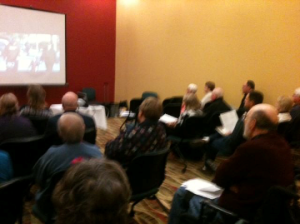 Synod assemblies: LOPPW’s Advisory Council member Eric Larson, from the Northern Great Lakes Synod, manned a display table at his assembly. He provided post cards for the ELCA’s campaign supporting child nutrition and the WIC Reauthorization Act at the LOPPW display table and the synod hunger team’s table. The director led a workshop at the East Central Synod Assembly and will lead workshops at the other four synod assemblies.
Synod assemblies: LOPPW’s Advisory Council member Eric Larson, from the Northern Great Lakes Synod, manned a display table at his assembly. He provided post cards for the ELCA’s campaign supporting child nutrition and the WIC Reauthorization Act at the LOPPW display table and the synod hunger team’s table. The director led a workshop at the East Central Synod Assembly and will lead workshops at the other four synod assemblies.Proposed state budget: LOPPW is working with a coalition of secular and faith-based nonprofits, called Better Choices, to make better state budget choices known. LOPPW has helped organize two press conferences: On May 4, Bishop Mary Froiland spoke on a panel in Madison. On May 14, Bishop Rick Hoyme and ELCA member and professor James Boulter spoke on a panel in Eau Claire. Bishop Hoyme discussed prioritizing those who are most vulnerable in the budget. Boulter focused on protecting our environment. LOPPW also posted a statement on revenue estimates, which were lower than some lawmakers had hoped for
Human trafficking: The Joint Finance Committee approved $2 million for youth victims of sex trafficking. Two Democrat legislators are trying to secure co-sponsors for a safe harbor bill. LOPPW has helped to target possible co-sponsors. The director visited with a Republican legislator who has agreed to be one of the co-sponsors.
Living-wage coalition: LOPPW joined a coalition of faith-based and secular organizations to strategize advocating for a higher minimum wage in Wisconsin.
What advocacy efforts are going on in your synod or state? We want to hear about it!
Contact us at washingtonoffice@elca.org





